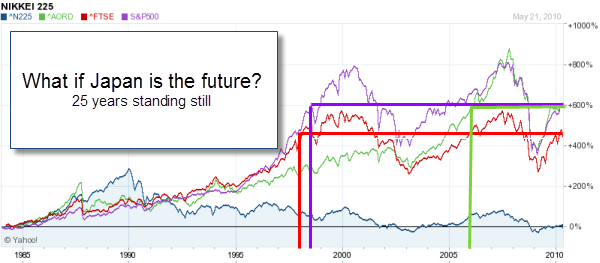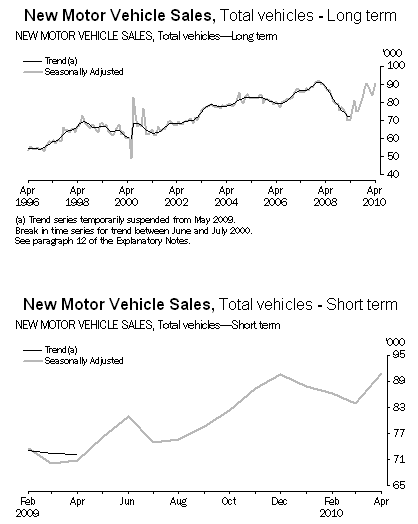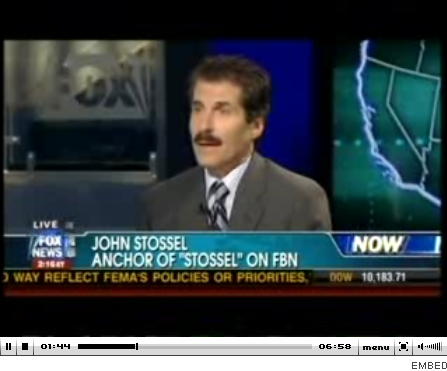Profiteering by iron ore miners — India’s windfall tax proposal. India’s Mines Minister B.K. Handique calls it “profiteering” by the merchant miners as iron ore prices have risen by about 170 per cent between 2003-04 and 2009-10. Hence Mr Handique’s letter to the nation’s Finance Minister Pranab Mukherjee a week ago calling for the imposition of a Windfall Tax on mining profits.
The Indian Express newspaper reported that the intensified pitch for the tax “comes close on the heels of Australian Premier [sic] Kevin Rudd recently announcing his government’s determination to impose a Resource Rent Tax, which is also understandably aimed at curbing the profiteering of Aussie mining behemoths like Rio Tinto, BHP Billiton etc.”
Minister Handique told The Express:
“We have told the Finance Ministry that while ore prices continue to surge, its cost of production hasn’t changed much. So, iron ore mining remains highly attractive for the miner. It is also a fact that higher returns have not translated into higher spends on CSR for local communities. What’s more, it has fuelled a rapid growth in ore production along with corresponding increases in boundary disputes, acrimonious litigation, misuse of transport permits of illegally mined minerals and recently in mafia activities.”
The India website of The Wall Street Journal said the proposed windfall tax on non-fuel minerals such as iron ore was to claim part of what the government considers high profits earned by the mining sector. “Our proposal is to levy a windfall tax on domestic sales as well as exports of minerals when their (prices) are substantially higher than the cost of production,” Minister Handique said in an interview with The WSJ.
“On the lines of a similar proposal in Australia, the new tax is also meant to raise additional revenue for the government. But unlike in the former, India has a predominantly captive production model where mining leases are mostly given out to producers with their own plants to make finished products such as steel. The plan will need to be approved by the Finance Ministry before it can be implemented although it doesn’t need parliamentary approval, as is the case in Australia.”
Grave risks for Labor. The signal from Resources and Energy Minister Martin Ferguson on possible adjustments to the mining super profits tax was decidedly unhelpful. The last thing the Government needs now is anything that looks like backing down in the face of opposition from the mining industry. Nerves must be kept. If Prime Minister Kevin Rudd does back down his reputation as a weak leader not prepared to stand up for anything will be irrevocably confirmed. And weak leaders don’t win elections.
The Murdoch forum for racists. Late last week John Stossel, an employee of the Murdoch empire’s Fox News, used Megyn Kelly’s Fox News show to defend the right to discriminate based on race. “Private businesses ought to get to discriminate,” he said “And I won’t won’t ever go to a place that’s racist and I will tell everybody else not to and I’ll speak against them. But it should be their right to be racist.”
The website MediaMatters for America reports that Stossel didn’t just argue for the right to discriminate. He went a step further, suggesting the “public accommodations” section of the Civil Rights Act should be repealed, thus allowing businesses to practice racial discrimination. This is the section of the law that prohibits a lunch counter from refusing to serve African-Americans — a practice which was commonplace when the law was passed. The government, Stossel says, should be protecting the rights of businesses that want to discriminate — not the rights of minorities facing pervasive discrimination.
Have a listen for yourself and if you are offended as I am why not suggest to your industry superannuation fund that you hope they are not investing your funds in a company that gives a forum to a commentator with these views.
A change in the seasons. Leadership challenge stories are on the way out. Election date speculation is upon us. Like the first cuckoo in spring The Daily Telegraph this morning had Early election clue found in MP speeches
A deflationary horror story. So you are prudent Japanese saver and have carefully invested your savings in shares for the past 25 years and now you find yourself, admittedly after receiving a small earn from dividends, with exactly the amount of money you contributed. It’s the kind of record that should be frightening Americans when they read the Nobel prize winning economist Paul Krugman writing that as the core rate of inflation in the US is now clearly below 1%, it’s not hard to see Japan-style deflation emerging if the economy stays weak. The danger of a lost decade, writes Krugman on his New York Times blog, remains quite real.

That blue line at the bottom is the Japanese Nikkei 225 Index from 1985 onwards tells part of the deflationary story and a depressing one it is. Not that the British (the FTSE is the red line) or the American (the S&P 500 is in purple) experience for share buyers has been all that flash over the last decade either. They have essentially been profitless markets since the late 1990s as well. By comparison investors in the Australian market have only had four years of a stagnant ASX All Ordinaries index (the green line).
Words of political realism in a quote of the day. To continue with my cheerful version of the economic news. The 51-year-old economist Nouriel Robini, widely known as Dr Doom, having predicted a US housing market crash, financial crisis and partial collapse of the banking sector, turns his attention to sovereign debt in an interview published in the London Daily Telegraph.
“In the US there is a lack of bipartisanship between Democrats and Republicans, in Germany Merkel has just lost the majority in her legislature, in Japan you have a weak and ineffective government, in Greece you have riots and strikes. The point is that a lot of sacrifices will have to be made in these countries but many of the governments are weak or divided. It is that political strain that markets are worried about. The view is: you can announce anything, we’ll see whether you’re going to implement it.”
“People asked me why I saw there was a bubble and my question was why others didn’t. During the bubble everybody was benefiting and losing a sense of reality. And now, since there is the beginning of economic recovery – however bumpy that might be – in some sense people are already starting to forget what happened two years ago. Banks are going back to business as usual and bonuses are back to levels that are outrageous by any standards. There is actually a backlash against even moderate reforms that governments are trying to pass.”
An ingenious political solution. Reading a lengthy New York Times feature on what Julia Gillard might call an American education revolution, I came across an ingenious device get politicians in New York State to confront the teachers unions and introduce the system of charter schools that are publicly financed schools open to any child by lottery but run by entities other than the conventional local school district.
Those who run these charter schools, normally non-profit organisations, are accountable for the school’s performance, says the article, but they are free to manage as they wish. That includes the freedom to hire teachers who are not union members.
Then came the interesting bit about how that opposition was overcome:
A law allowing charter schools in New York was passed in 1998 over intense opposition from the teachers’ union. It survived because there was a Republican governor, George Pataki, and then only because Pataki attached it to a bill giving a pay raise to legislators.
Perhaps when Ms Gillard becomes Prime Minister we might see a repeat of this tactic! And don’t be surprised if she is instead still Education Minister to see more changes to our education system based on what the Obama administration has named “The Race to the Top”. The article outlining some of the recent changes to government schools is well worth a read.
But no sign of doom and gloom here. There’s no sign of doom and gloom in the figures this morning from the Australian Bureau of Statistics. Sales of new motor vehicles in April recovered from a downward blip in March with the seasonally adjusted figure of 90,935 being more than 20,000 higher than a year ago.









I don’t think Australia does the ‘rider’ trick on legislation.